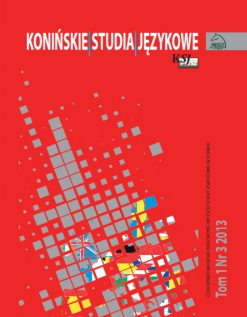The role of Iraqi EFL learners’ out-of-class study strategies in their language achievement
The role of Iraqi EFL learners’ out-of-class study strategies in their language achievement
Author(s): Zainab Hadi Knehir, Hadi Akbari, Mohammad GhazanfariSubject(s): Gender Studies, Foreign languages learning, Language acquisition, Cognitive linguistics, Cognitive Psychology
Published by: Akademia Nauk Stosowanych w Koninie
Keywords: out-of-class study strategies; language learning strategies; English proficiency; language achievement; gender;
Summary/Abstract: One of the ways that can help the learners receive adequate and authentic linguistic input is the employment of out-of-class study strategies. The purpose of the current study is investigating how the use of out-of-class study strategies is related with language achievement, gender, and language proficiency among Iraqi learners of English. In total, 74 Iraqi male and female language learners participated in the study. The data on the use of out-of-class study strategies were collected by administering the out-of-class study strategies questionnaire. The collected data were analyzed using a combination of Spearman correlation coefficient and independent samples t-tests. On the basis of the data analysis, it was found that there is a positive and significant relationship between the use of out-of-class study strategies and English language achievement among Iraqi language learners. Furthermore, significant difference was found between the high proficiency and low proficiency learners in terms of using out-of-class study strategies but not between male and female learners. It is concluded that out-of-class study strategies need to be further highlighted and be subject of direct instructions.
Journal: Konińskie Studia Językowe
- Issue Year: 8/2020
- Issue No: 3
- Page Range: 231-246
- Page Count: 16
- Language: English

